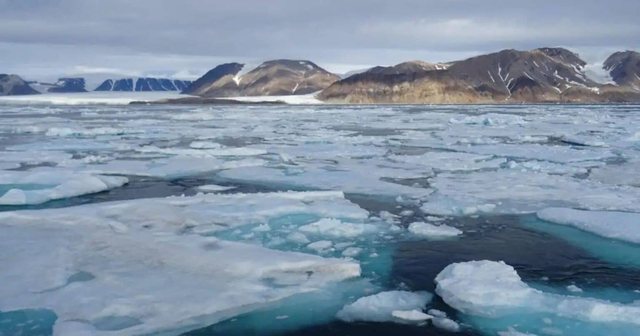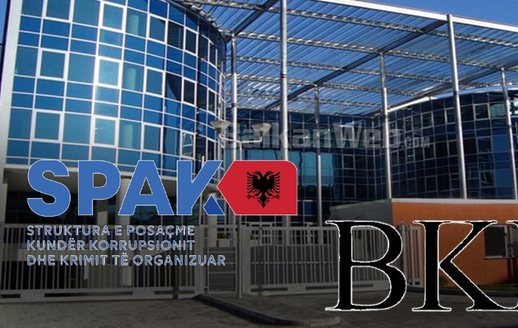
Researchers uncover 770,000-year-old secret in Canadian Arctic


A remarkable discovery in the Canadian Arctic has revealed an ancient glacier that could be over a million years old, making it one of the oldest glaciers ever found. This glacier offers a unique opportunity to study Earth's climate history and understand climate changes during the Pleistocene epoch. The discovery began in 2009 when Daniel Fortier and his team were investigating landslides caused by melting permafrost. During their study, they found bodies of ice layered over an ancient fossil forest, and radiocarbon dating revealed that the organic material within the ice was over 60,000 years old. This discovery, along with a magnetic anomaly that coincides with a 770,000-year-old shift in the Earth's magnetic field, confirmed the age and significance of the glacier. This discovery could provide critical insights into how the planet's ice sheets and permafrost have responded to past climate change and help us understand the effects of today's warming world.
Glaciers act as “paleoenvironmental repositories,” preserving information about climates, ecosystems, and life on Earth in the past. Ice cores from glaciers preserve organic remains, fossils, and even ancient DNA, making them invaluable to researchers studying how the planet evolved. The discovery of this glacier is particularly significant because it could help scientists better understand how permafrost responded to past climate change, and in turn, provide insights into how it might respond to current and future warming. As climate change continues to accelerate, researchers are particularly interested in how permafrost and glaciers will behave under modern conditions, as rapid ice loss could have far-reaching effects, from rising sea levels to the release of methane—a potent greenhouse gas.
The glacier in question may also hold records of Earth's magnetic field and its historical reversals. The fact that the magnetic minerals in the ice coincide with a 770,000-year-old reversal could lead to more discoveries about the relationship between Earth's magnetic changes and its climate. These findings not only push the boundaries of what we know about the Pleistocene epoch, but also reveal how Earth's climate system and its magnetic field have influenced each other over millennia.
Rëndësia e akullnajave si kjo nënvizohet nga urgjenca për të kuptuar klimat e kaluara , pasi ngrohja moderne e klimës përshpejtohet për shkak të aktivitetit njerëzor . Shkencëtarët po garojnë për të studiuar akullnajat e lashta për të fituar një pamje më të qartë se si planeti mund t’i përgjigjet krizës së sotme klimatike. Nëse kjo akullnajë ofron kaq shumë informacione për sistemet e kaluara të Tokës, ajo qëndron si një pjesë kritike për të kuptuar se çfarë mund të presë.
Ndërsa qëndrueshmëria e akullnajave dhe ngricave të përhershme ndaj ngrohjes së kaluar është e dukshme, ekziston shqetësimi në rritje se si ata do të reagojnë ndaj ndryshimit të shpejtë të klimës së sotme. Gjetjet nga akullnaja kanë sugjeruar se këto sisteme akulli janë më elastike sesa mendohej më parë , por ekspertët mbeten të kujdesshëm për të ardhmen. Daniel Fortier deklaroi, “Unë nuk mendoj se permafrost do të zhduket kaq shpejt. Sistemi është më elastik se sa mendojmë,” duke pranuar se ndërsa ndryshimet klimatike të kaluara kanë ndikuar në ngricat e përhershme dhe akullnajat, ngrohja moderne mund t’i destabilizojë këto shtresa të lashta akulli me një ritëm shumë më të shpejtë.
Megjithatë, studimi theksoi gjithashtu rreziqet e mundshme të ngrohjes moderne të klimës , veçanërisht fenomenin e termokarstit – një proces ku ngricat e përhershme gërryen me shpejtësi për shkak të ngrohjes. Ndërsa temperaturat më të ngrohta shkaktojnë shkrirjen e tokës, lënda organike e ngrirë më parë ekspozohet dhe sasi të mëdha të gazeve serrë , si metani , mund të lëshohen në atmosferë, duke përforcuar efektin e ngrohjes . Studimi paralajmëroi se ndërsa arkivat e akullnajave mund të duken të qëndrueshme, ngrohja e përshpejtuar mund të prishë këto të dhëna të lashta, duke destabilizuar si akullnajat ashtu edhe ngricat e përhershme që ato mbrojnë.
Studimi jo vetëm që tërheq vëmendjen ndaj cenueshmërisë së akullnajave dhe ngricave të përhershme në kontekstin e ngrohjes së klimës moderne, por gjithashtu thekson nevojën për kërkime të mëtejshme . Humbja e permafrostit dhe paqëndrueshmëria akullnajore mund të ketë pasoja të tmerrshme për brezat e ardhshëm. Nevojitet më shumë punë për të vlerësuar se si shkrirja e vazhdueshme e shtresave të akullit mund të ndikojë në sistemet globale në terma afatgjatë.
Ndërsa bota përballet me efektet e përshpejtuara të ndryshimeve klimatike , ruajtja e akullnajave dhe ngricave të përhershme nuk ka qenë kurrë më urgjente. Ndërsa zbulimi i kësaj akullnaje të lashtë jep shpresë për të kuptuar dinamikat e së kaluarës klimatike, sfidat e sotme të erozionit të ngricave të përhershme, rritjes së nivelit të detit dhe përçarjes së ekosistemit kërkojnë veprim.
The research suggests that modern climate change, driven by human activity, is leading to an unsustainable rate of warming, threatening both the natural world and human systems. Fortier's study has urged policymakers and researchers to consider ways to mitigate human impact by reducing greenhouse gas emissions, investing in renewable energy sources, and promoting energy-efficient technologies. Fortier also suggests that the permafrost system may not be as fragile as previously thought, although its stability depends on the speed and magnitude of warming in the coming decades.
Supporting ongoing scientific research is essential, as it will enable scientists to improve climate models and develop solutions for protecting glaciers and permafrost. Furthermore, local and global efforts to combat climate change will be essential to ensure that glaciers like the one discovered in the Canadian Arctic continue to provide valuable information about Earth's past and future climate.

Why have all the corrupt gathered together against Lulzim Basha?
ideas
top
Alfa recipes
TRENDING 
services
- POLICE129
- STREET POLICE126
- AMBULANCE112
- FIREFIGHTER128



























